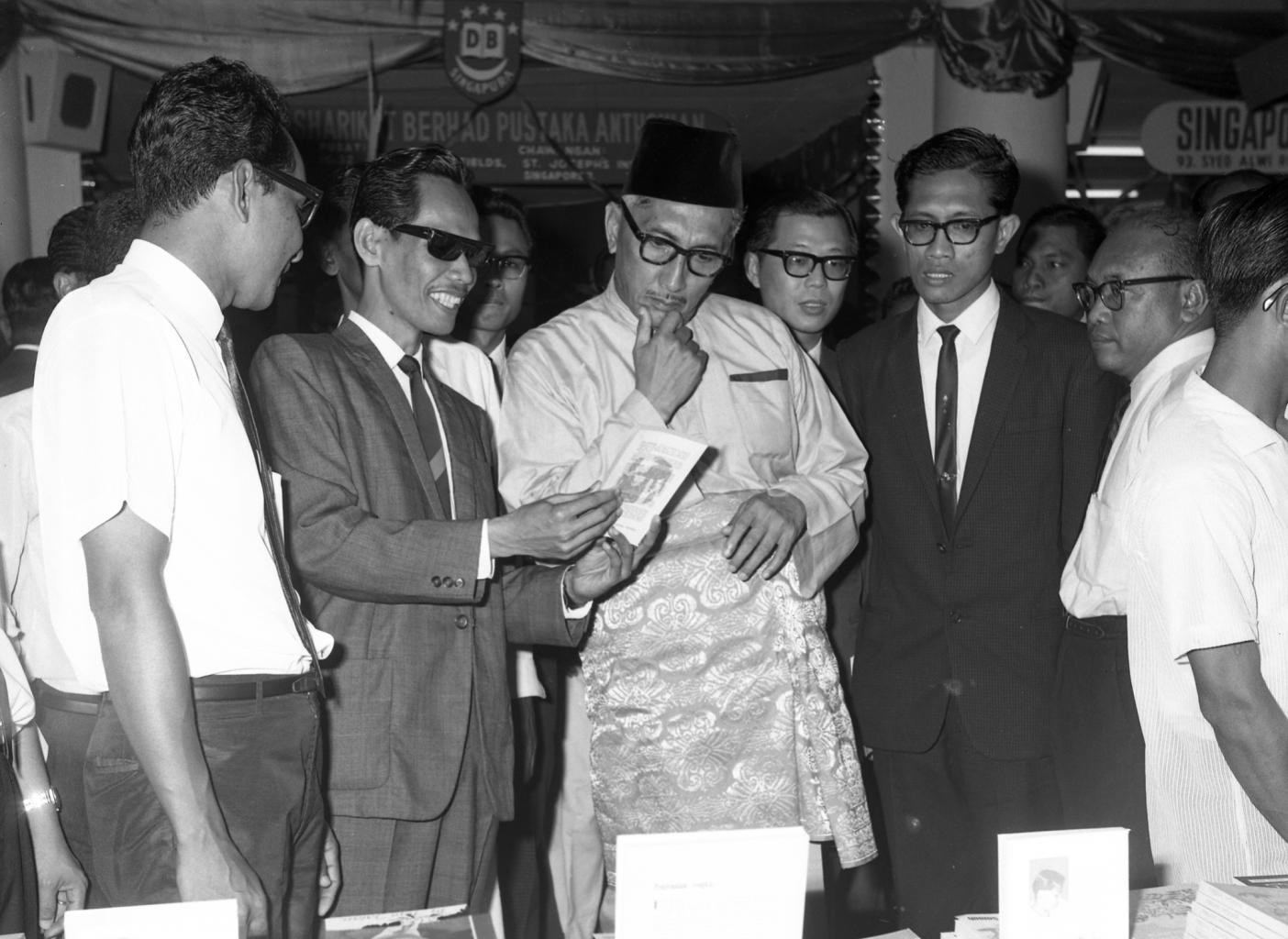Parliament: Institute of Southeast Asian Studies renamed ISEAS-Yusof Ishak Institute on Aug 12
Sign up now: Get tips on how to help your child succeed

The Institute of Southeast Asian Studies (ISEAS) will be renamed the ISEAS-Yusof Ishak Institute on Aug 12 - the 105th anniversary of the birth of Singapore's first president (centre).
PHOTO: ST FILE
Nur Asyiqin Mohamad Salleh
Follow topic:
SINGAPORE - The Institute of Southeast Asian Studies (ISEAS) will be renamed the ISEAS-Yusof Ishak Institute on Aug 12 - the 105th anniversary of the birth of Singapore's first president.
The Bill for the name change - which was first announced by Prime Minister Lee Hsien Loong at last year's National Day Rally - was debated in Parliament on Tuesday.
Speaking on the Bill, Education Minister Heng Swee Keat said: "We are proud to have ISEAS bear Encik Yusof Ishak's name... His convictions and life's work resonate strongly with ISEAS' foundational tenets, and it is befitting that his name will be borne by ISEAS."
Mr Yusof's contributions, along with those of early Malay pioneers - like former minister Othman Wok, were critical to the country's success in its fledgling years, said Mr Heng.
When Singapore achieved self-governance in 1959, Mr Yusof was its Yang di-Pertuan Negara. Six years later, he became the first president of an independent Singapore.
He firmly believed racial unity was crucial to Singapore's success - and he actively lived out his belief, noted Mr Heng. Mr Yusof would walk the ground tirelessly, visiting constituencies and reaching out to the different racial and religious groups.
It was a turbulent time, and communal tensions simmered. Mr Yusof, as Singapore's first president, played a key role in helping restore the trust and confidence of Singaporeans then, who lived through events like the 1964 racial riots.
"We are very fortunate that Encik Yusof was Singapore's Head of State at our founding moment. That he embodied our sovereignty assured our pioneer generation of Malays that they have a place in Singapore - he assured all races that this would be home for all," said Mr Heng.
"This would not be a Chinese nation or a Malay nation or an Indian nation; this would be a Singaporean Singapore, as our founding Prime Minister Mr Lee Kuan Yew had declared. President Yusof was the living personification of that promise."
Beyond uniting the different communities, Singapore's early leaders also had to navigate issues such as communal discord and the urgent need to grow the country's economy.
"They were keenly aware that solutions to these needed to be buttressed by knowledge of regional developments," said Mr Heng.
And ISEAS, established by the government in 1968 - just three years after Singapore achieved independence - has helped deepen understanding of the region, and strengthened ties among regional scholars.
Colonial rule in the region was then coming to an end, and freshly-independent Southeast Asian countries saw regional integration as crucial to their survival.
Singapore, too, was looking to find its place in a region just starting to make its way forward, away from colonial rule.
"Our success today has been built by pioneering leaders such as Encik Yusof, and institutions such as ISEAS that have helped to inform our leaders' policy decisions. The foundation for a strong nation is true today as in the past - peace and stability based on mutual understanding, within Singapore and beyond," said Mr Heng.
And understanding Singapore's place in the region will remain critical in keeping it relevant, he added.
"As we celebrate Singapore's 50th birthday, and honour the outstanding men and women who have shaped our nation and wrought our successes, it is fitting and timely to pay tribute to Encik Yusof through the renaming of ISEAS in his honour," said Mr Heng.

